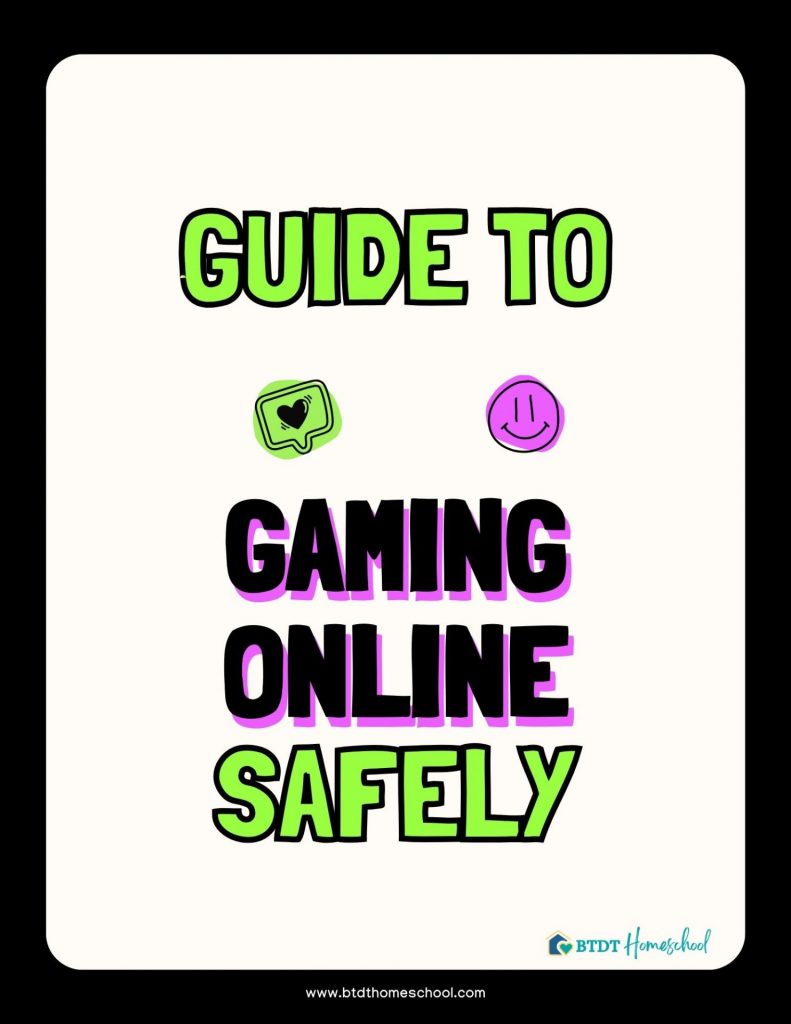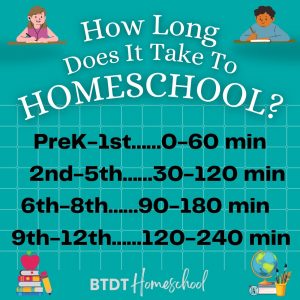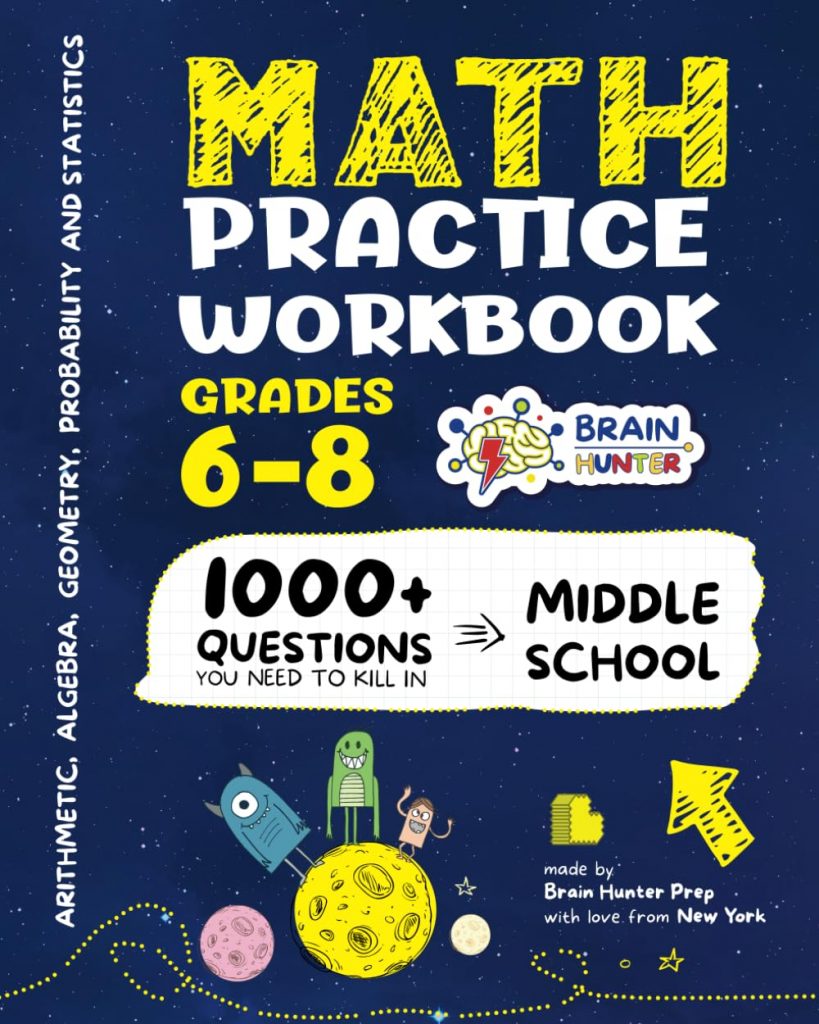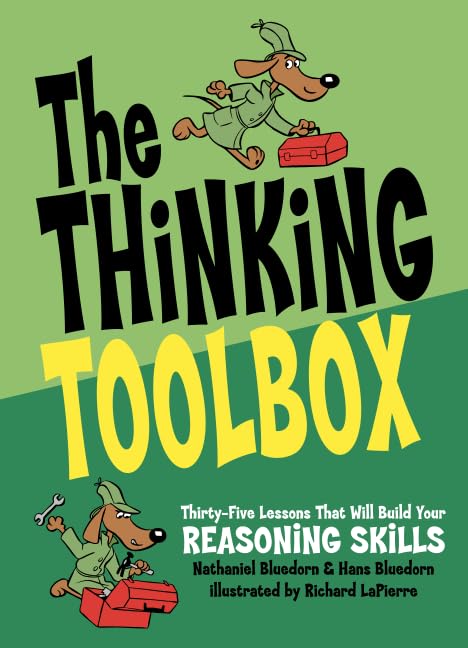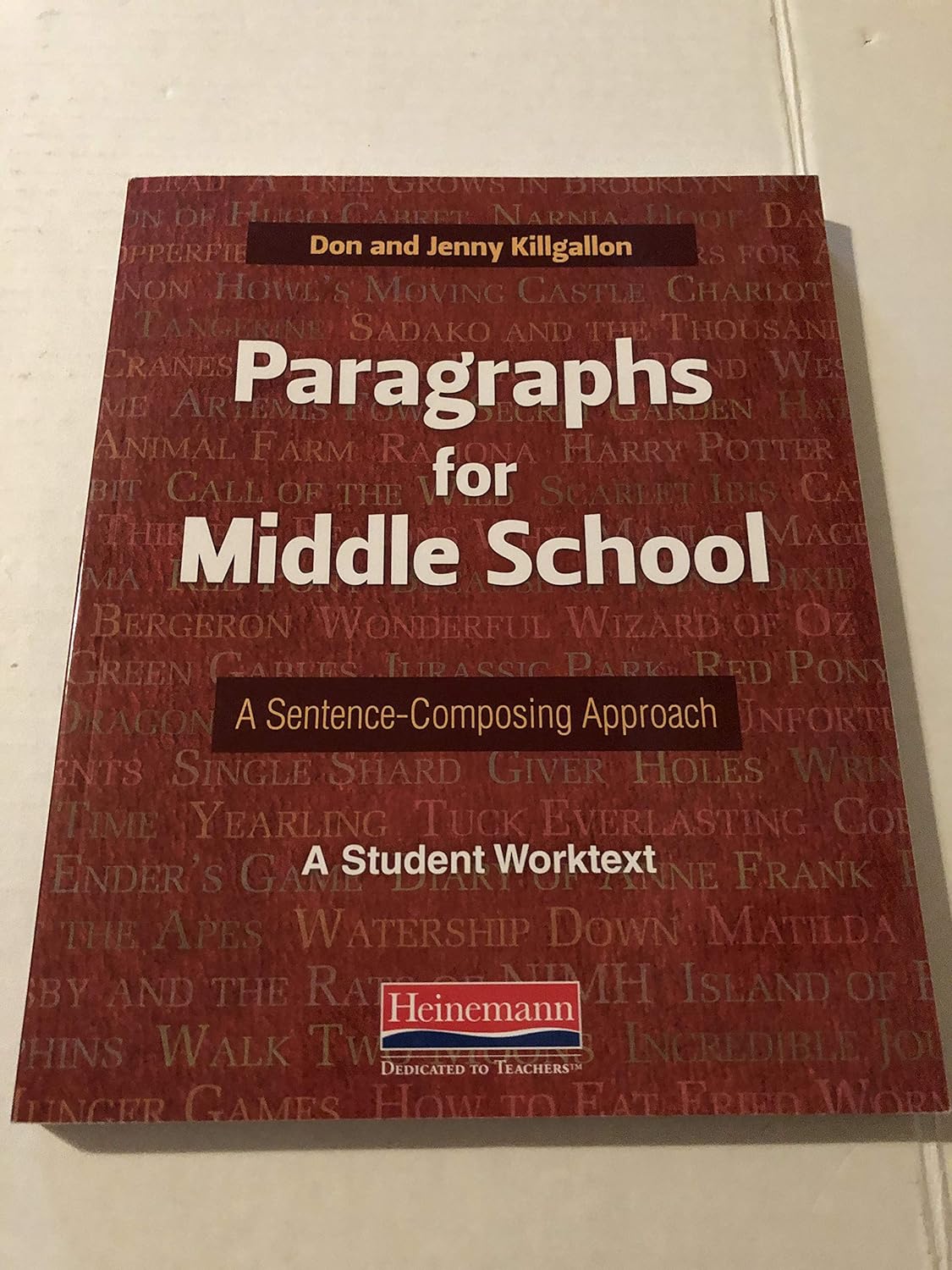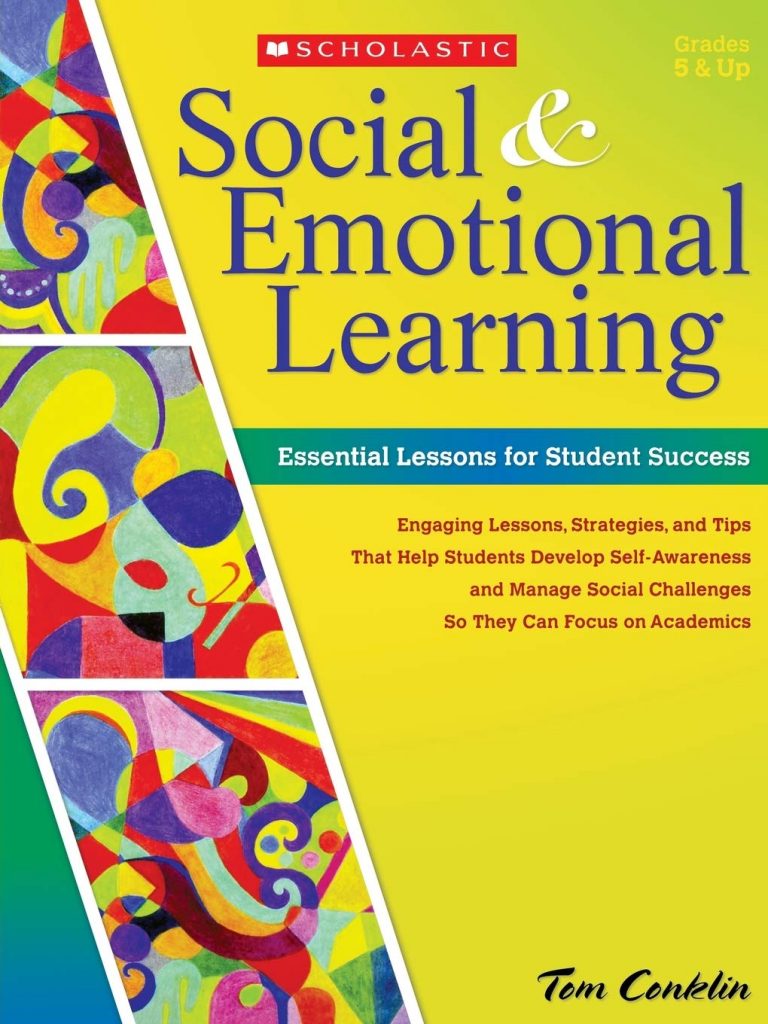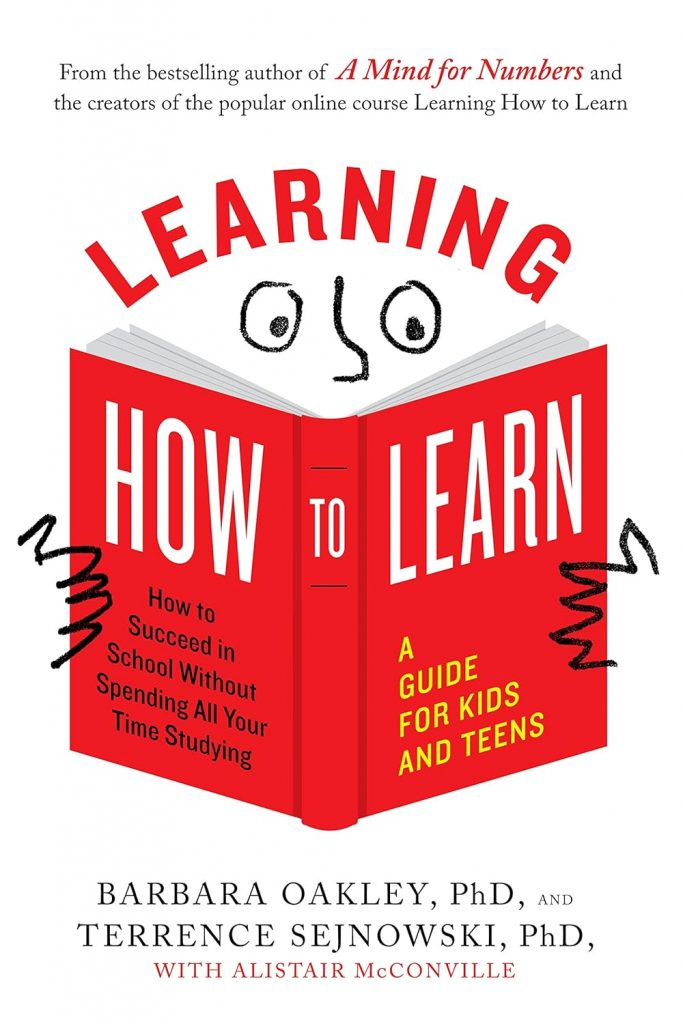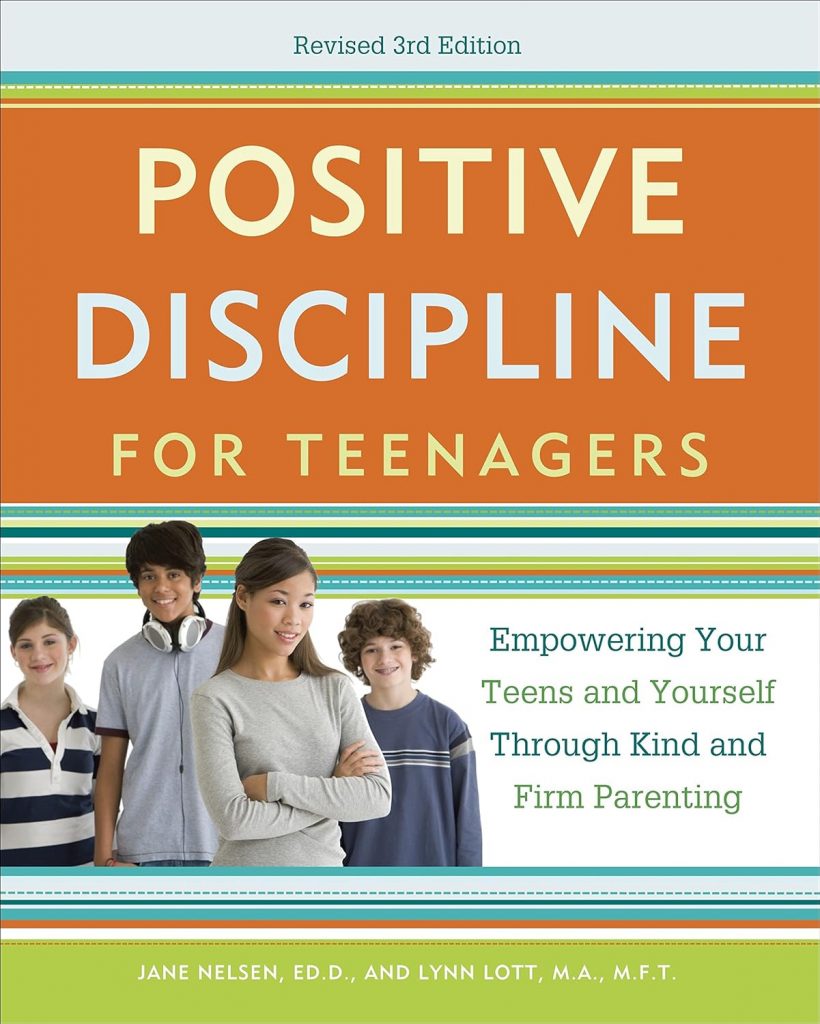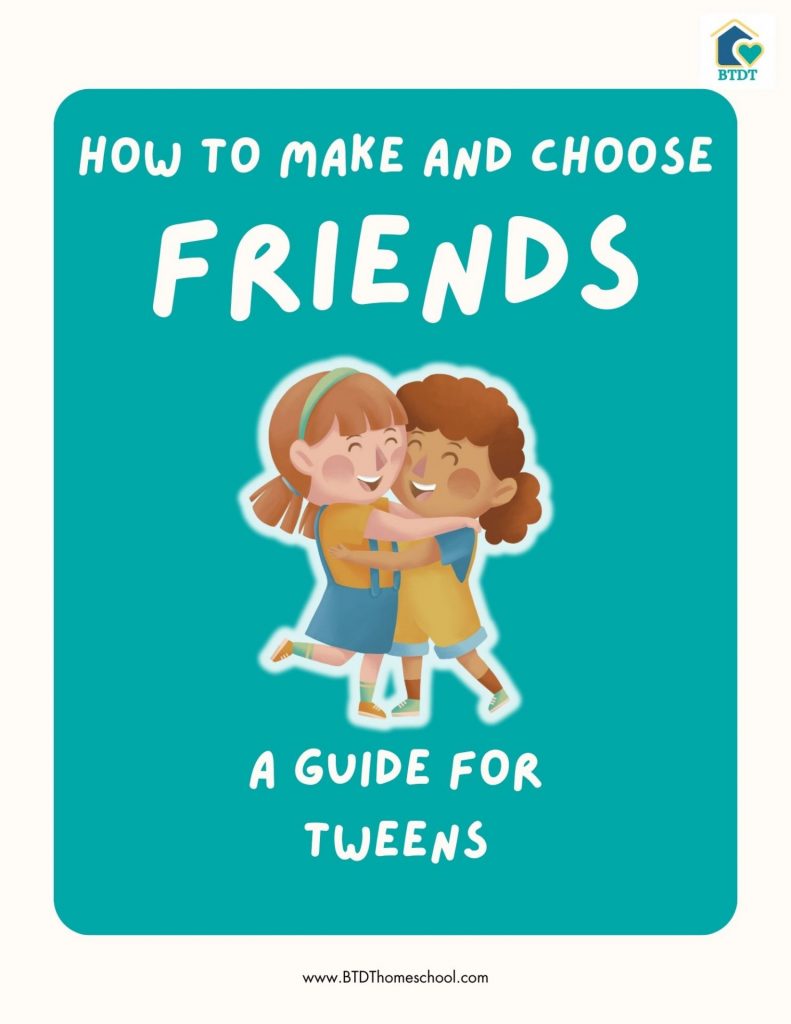055. Navigating Technology, Social Media, and Gaming in High School
Navigating Technology, Social Media, and Gaming in High School
This is the 11th episode in our High School Series
In today’s interconnected world, technology, social media, and gaming have become integral aspects of our kids’ lives. Learn how to navigate the challenges and embrace the opportunities that technology brings to your child’s education.
Episode 055:
TWO WAYS TO LISTEN TO THIS EPISODE:
1. Click PLAY Button Above ^^ to listen here.
2. OR Listen on your favorite podcast platform:

Apple – Spotify – Google Play – Amazon – Others
Scroll down for this week’s FREEBIE:
Guide to Online Gaming Safely (pdf)
Brand New to Homeschooling?
GETTING START PAGE >>
Kindergarten Page >>
High School Series >>
Show Notes
We’re uncovering the ever-evolving intersection of homeschooling and the tech-savvy generation, shedding light on how these young learners harness the power of the digital realm for growth, connection, and self-discovery.
Our digital landscape is rapidly evolving and whether we like it or not, technology, social media, and gaming have become huge parts of the lives of our kids – especially teenagers. With the rise of smartphones, social networking platforms, and increasingly sophisticated video games, teens find themselves navigating a complex and dynamic intersection of virtual and real-world experiences. If your kids are like ours, they probably know and understand way more than you do about modern-day tech!
The use of technology, the influence of social media, and the allure of gaming significantly shape the lives of our children. Especially during the teen years! These social, educational, and recreational dimensions of their life offer both opportunities and challenges. This age of modern connectivity is reshaping the way they communicate, learn, and unwind, and can even blur the boundaries between the physical and digital realms. Every family is going to have different rules of how all of this technology is introduced, but many kids get their start online with various apps and games and that only grows as they get older.
Teenagers often find connection in online gaming. We all know that homeschooling is a big timesaver over a more traditional school with more flexibility in their schedule, allowing them more time to explore their favorite virtual realms. When our kids were younger, Game Ed Academy was Homeschooling with Minecraft.
We talk all the time about hands-on learning, being present, and how many opportunities our kids get to socialize in person because they literally have more hours in their day. But online gaming can also foster social interactions, teamwork, and problem-solving skills. Through digital adventures, homeschooled teens can find a sense of camaraderie and shared experiences, cultivating a diverse group of friends who share their passion for gaming.
Felicia Day book, “You’re Never Weird on the Internet” and her unique life as a homeschooler gave her a lot of opportunities to explore her interest in gaming and the tech world.
Striking a balance and intersecting homeschooling and online gaming showcases how technology can enhance the social and educational experiences of today’s teens. It can supplement what you’re already providing for them and create additional avenues for personal growth and connection.
How To Approach Using Technology in Your Homeschool (9:35)
Balance
Find a healthy balance between screen time and other activities to ensure that technology doesn’t consume the entire day. Remember, this episode is for our highschoolers and in a couple years, they’re going to be off on their own. It’s our job to teach them effective time management skills to find balance in their academic work, social life, and online activities. Hopefully this is something you’ve been working on all along, but if not, start teaching them balance and good habits now.
Online Safety
Be mindful of sharing personal information online, and use strong, unique passwords to protect your accounts.

The Smart Girl’s Guide to Privacy help you cut through the confusion and start protecting your online life.
Privacy Settings: Familiarize yourself with the privacy settings on social media platforms and gaming accounts to control who can access your information. Some apps have location sharing, so be sure you stay on top of that and don’t blindly approve platforms you’re unfamiliar with.
Digital Footprint: It’s important that teens recognize that their online actions leave a digital footprint that can impact their future, such as college admissions or job opportunities.
Content Evaluation: Be critical of the content you consume online and in games to ensure it aligns with your values and doesn’t promote harmful behavior.
Media Literacy: teach them the ability to discern credible information from fake news and be aware of the potential for manipulation on the internet.
Healthy Relationships: Use technology and social media to foster positive, real-world relationships, rather than just substituting them with virtual connections.
Cyberbullying: Understand the potential risks of cyberbullying and how to respond if you or someone you know experiences it. And at this age, it may seem like they aren’t listening, but I promise that they are so don’t stop guiding them because you don’t think they’re listening. They are!
By considering all of these factors, homeschooled teenagers can make informed and responsible choices regarding their use of technology, social media, and gaming.
How To Use Technology in Your Homeschool (16:55)
Integrating technology into a homeschool high school is almost a must in today’s world. It can really enrich your academic experience. Utilizing digital resources can enhance the learning process by offering access to a vast array of educational materials, from virtual laboratories for science experiments to multimedia resources for history and language arts. Technology also facilitates personalized learning, allowing homeschooled high school students to have tailored curriculum according to their individual needs, interests, and accommodating their learning style and pace. It can also foster self-discipline and responsibility as teens manage their assignments, schedules, and research independently, which are essential skills for success in college and the workforce.
Exactly, also our highschoolers taking dual enrollment courses in person and our college students taking classes in person at their universities requires them to also be online for exams, discussion boards, and other assignments. It’s essential that they learn to navigate these things. So, if you’re one of those hold-outs on technology, you may want to reconsider all the skills that they are not learning that they will need.
So let’s talk about how our homeschool highschoolers can effectively use technology as a valuable tool in their homeschooling:
Online Resources: Access educational websites, digital textbooks, and online courses to supplement their learning.
Virtual Classes: Participate in virtual classes and webinars to learn from expert instructors or connect with other homeschooled students. Khan Academy.
Outschool: Outschool offers variety of classes and over 100,000 Interactive Online Classes for every age group from 3 to 18 years.

Outschool is an education platform that connects teachers of any subject with students around the world for a variety of engaging small-group classes online. It gives kids the opportunity to explore their interests via interactive, live video by experienced, independent educators. Outschool offers variety of classes and over 100,000 Interactive Online Classes for every age group from 3 to 18 years. Find one for you:
- Arts – Drawing, photography, dance, Theatre, Film, Sewing
- Coding & Tech – Coding, Video Game Design, Robotics, Engineering, Internet Safety, Animation
- English – Creative Writing, Grammar, Spelling, Book Club, Essay Writing, Poetry, Literature
- Health & Wellness – Hygiene, Emotions, Exercise, Mindfulness, Nutrition
- Life Skills – Cooking, Financial Skills, Study Skills, Social Skills, Critical Thinking
- Math – Elementary math, Algebra, Numbers, Geometry, Fractions, Calculus, Statistics, Probability
- Music – Guitar, Piano, Singing, Composers, Music Theory, Composing, Recording
- Science & Nature – Chemistry, Biology, Zoology, Physics, Astronomy, Anatomy, Marine Biology, Psychology
- Social Studies – Geography, World History, American History, Anthropology, Economics, Politics
- World Languages – Spanish, American Sign Language, French, Japanese, Latin, German, Chinese, Greek, Italian, Mandarin
E-Libraries: Utilize digital libraries and e-books to access a wide range of reading materials and resources. Libby, Hoopla, Overdrive are all great sites for getting library books. If you are in a rural area with limited selections or struggling with access to banned books you can get access by using other libraries- New York City, Broward County.
Educational Apps: Explore educational apps that cover a wide range of subjects, making learning engaging and interactive.
Research: Your teenagers can use the internet for research. Long gone is the card catalog, this is where the research now happens. Although I did teach my kids how to use a card catalog. The Internet has vast amounts of information for research papers, projects, and assignments. One of my favorite resources is the Internet Archive. It’s completely free and available to everyone and has so many resources. It literally has everything and it’s a great place for your kids to access things you thought were long gone. You can also check out the Virtural Card Catalog or Britannica Online.
Collaboration: Collaborate with peers on group projects using online collaboration tools and video conferencing platforms. We are all experts in zoom now, thanks to covid. Google docs is something I used with my Future City and GEMUN groups for writing a collaborative essay.
Digital Note-Taking: Use note-taking apps and tools to organize and store class notes and assignments. My kids also use shared google docs for notetaking with classmates.
Learning Management Systems: Some homeschooling programs use learning management systems (LMS) to deliver and manage coursework. Google Classroom, Blackboard, Bright space, canvas are all examples.
STEM Resources: Access online resources and simulations for science, technology, engineering, and math (STEM) subjects. Here are some Online Dissection Resources.
Language Learning: Use language-learning apps and websites to study foreign languages. Having pronunciation built in is brilliant! Duolingo and Mango are favorites.
Coding and Programming: Learn coding and programming skills through online courses and coding platforms. Khan Academy has a lot of resources for free including Hour of Code. MIT has their free software to help teach kids how to program called Scratch. You can also get a lot of these directly from your local library. A lot of them have subscriptions that you just need your library card to login and your account is paid for.
Virtual Field Trips: Take virtual field trips to museums, historical sites, and other locations around the world. Another great thing that came out of covid was access to museum sites. I also always recommend sites, like the Dallas Human Rights museum, for educational resources. Museums and other educational sites always have tons of resources listed for educators, often these include lesson plans or are categorized by age or grade level. I mentioned in a recent episode that I was hanging out online at the Louvre in Paris. I also love wildlife cams. Visit Museums Virtually Online.

Online Tutors: Seek help from online tutors or educators when needed for specific subjects or topics.
Digital Portfolios: Create digital portfolios to showcase their work and accomplishments.
Presentations: After high schoolers finish a unit study, we typically think of a research paper to wrap it up. But you can get really creative with this. They can create a digital presentation with PowerPoint or another presentation software or they could even create a blog, a website, or a podcast in lieu of a traditional research paper.
Time Management Tools: Utilize time management apps and tools to help balance their academic schedule. We both love checklists and things like Trello and Time Finder. The key is to find something that works for your teenager that they are happy to use. They may not use what works best for you. If it’s an app, you may want to also login with the same ID or use a shared app so you can communicate assignment completion that way. Many highschoolers are doing more and more of their own time management. We’re starting to hand off the torch with guidance, of course.
Those are just some of the cool things tech can offer your homeschool. Obviously, homeschooled teens should work with their parents to ensure they are using technology in a balanced and responsible manner so keep communicating with them and make sure expectations are clear to everyone. But don’t be afraid of using technology! Take advantage of the educational opportunities it offers while managing screen time and online safety.
Do teenagers need social media? (29:06)
Social media can have both positive and negative impacts on homeschooled teens. On the positive side, social media platforms provide them with opportunities for social interaction and community building. Many teens use social media to connect with peers. It may be friendships, shared hobbies, or even study groups. This can help combat feelings of isolation and ensure that they have a support system in place, even outside of traditional school. Additionally, social media offers a vast repository of educational resources, like some that we addressed and even educational communities where homeschooled teens can exchange knowledge and seek guidance. These platforms can help teens explore their interests, discover new subjects or hobbies, and even connect with mentors or experts in various fields.

However, the negative aspects of social media really need to be considered. We all know now that excessive use of social media can lead to distractions from responsibilities and impact their academic performance. Cyberbullying and exposure to inappropriate content are other significant concerns. And we all know that social media can create unrealistic comparisons and peer pressure. That can contribute to mental health issues like anxiety and depression. It’s important for parents and teenagers to strike a balance between the benefits and drawbacks of social media, ensuring it is used as a tool for learning, connection, and personal growth while being mindful of its potential pitfalls.
With all of that in consideration, homeschooled teenagers, like their peers in traditional school settings, are going to use social media for a variety of purposes. For one, social media platforms help them stay in touch with friends and make new connections, combating potential isolation. We’ve moved a lot, but this has allowed us to stay friends. We also regularly use SM in the sport my kids do.
Homeschoolers can also participate in virtual clubs and interest-based groups through social media. You can also use it as a platform for showcasing talents, whether in music, art, or other creative pursuits. My 16yo son, Cameron, is a musician and teaches guitar lessons. We built a website for him, but he also has a Facebook and YouTube page where he promotes his music. He also wrote the BTDT Homeschool jingle!
Some homeschool teens use platforms like Pinterest, TikTok, or Instagram to learn new skills, such as cooking, art, or coding. They may use social media to access educational content, connect with online tutors, or join study groups. We also have a good friend’s teenage daughter those crochets little stuffed animals and has a successful Etsy shop.
They may use social media to stay updated on current events, news, and trends. Some use social media to advocate for causes they’re passionate about or to raise awareness of issues they care about. You just might want to stay away from the comment section.
Homeschooled teens often seek advice, resources, and support from online communities of homeschooling families and educators just like parents do. We are on Facebook- but a lot of them aren’t! But they use other sites just like we do.
Social media can provide an outlet for self-expression through posts, photos, and videos. Some find that negative- talk to your kids about how social media is often showcasing the highlight real and to be realistic about what they see. If you think social media is causing issues with self-esteem or jealousy, by all means restrict it. Sometimes we have to tell this to ourselves too. Especially as homeschoolers because these highlight reels can be really intimidating when everybody else’s kids are doing things that maybe our kids aren’t doing yet. It’s crucial for homeschooling parents and teens to approach technology use with care, finding a balance between the valuable connections and Learning opportunities it offers, while being mindful of the challenges of time management and online safety.
This Week’s Freebie:
